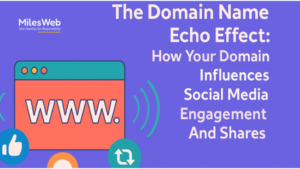In the realm of digital marketing, effective SEO is crucial for the success of your online presence. At Digitalz Pro Media, we understand that optimizing your content requires using a variety of keyword types tailored to different purposes. Here, we dive deep into the 11 types of keywords in SEO, complete with practical examples for each.
1. Short-Tail Keywords
Short-tail keywords are typically one or two words, making them highly competitive due to their broad nature. These keywords have a significant amount of search volume but often result in lower conversion rates as they are less targeted.
- Example: “Shoes”
- Practical Use: If you run an online shoe store, targeting the keyword “Shoes” can attract a large audience, but these users might not be ready to make a purchase yet.
2. Long-Tail Keywords
Long-tail keywords are phrases of three or more words that are more specific and often less competitive. They drive higher conversion rates due to their targeted nature.
- Example: “Best running shoes for flat feet”
- Practical Use: A niche shoe store targeting customers with specific needs could use this keyword to rank better and attract users who are more likely to convert.
3. Branded Keywords
Branded keywords incorporate your brand name and are ideal for capturing traffic from users who are specifically searching for your company.
- Example: “Nike running shoes”
- Practical Use: If you’re a retailer of Nike products, using branded keywords helps you attract customers already familiar with and loyal to that brand.
4. Non-Branded Keywords
Non-branded keywords do not include any brand names and are valuable for drawing in new audiences unfamiliar with your brand.
- Example: “Comfortable athletic shoes”
- Practical Use: For a brand trying to expand its audience base, targeting non-branded keywords can attract potential customers looking for comfort in their athletic footwear.
5. Buyer Intent Keywords
Buyer intent keywords indicate that the searcher is ready to make a purchase or take a decisive action. These keywords often include terms like “buy,” “discount,” or “best.”
- Example: “Buy waterproof hiking boots”
- Practical Use: E-commerce sites can capitalize on buyer intent keywords to attract customers who are on the verge of making a purchase.
6. Informational Keywords
Informational keywords are used for queries that provide answers or explanations to users’ questions. These are perfect for blog content or FAQ sections.
- Example: “How to clean white sneakers”
- Practical Use: Writing a blog post on maintaining white sneakers can attract users who need guidance, potentially turning them into loyal readers or customers.

7. Navigational Keywords
Navigational keywords are used when a user wants to find a specific website or page. They often include brand or product names.
- Example: “Nike website”
- Practical Use: For businesses with strong brand recognition, targeting navigational keywords ensures users can find your main website easily.
8. Transactional Keywords
Transactional keywords indicate a strong intent to complete a purchase. They often include phrases like “buy now,” “order online,” or “free shipping.”
- Example: “Order running shoes with free shipping”
- Practical Use: These keywords are essential for e-commerce platforms aiming to attract users who are ready to make a purchase immediately.

9. Geo-Targeted Keywords
Geo-targeted keywords are essential for local SEO, focusing on specific locations to draw customers within a certain area.
- Example: “Best shoe store in San Francisco”
- Practical Use: A local shoe retailer can use geo-targeted keywords to draw in customers specifically looking for products in their vicinity.
10. LSI Keywords (Latent Semantic Indexing)
LSI keywords are related terms or synonyms that support the main keyword, helping search engines understand the context of your content.
- Example: “Running sneakers” for the primary keyword “running shoes”
- Practical Use: Including LSI keywords in your content can improve your SEO ranking by signaling to search engines that your content covers the topic comprehensively.
11. Competitor Keywords
Competitor keywords are those your competitors are already ranking for. This type of keyword is valuable for identifying gaps and opportunities in your SEO strategy.
- Example: “Adidas running shoes”
- Practical Use: If you’re a competing brand, analyzing and incorporating competitor keywords can help you capture some of their traffic and understand what’s driving their success.

Utilizing a blend of these keyword types ensures your SEO strategy is robust and comprehensive. At Digitalz Pro Media, the best SEO company in Faridabad, we craft tailored strategies that integrate these keyword types to maximize your online reach and conversion potential. Reach out to us today to learn how we can enhance your SEO efforts and grow your business.





